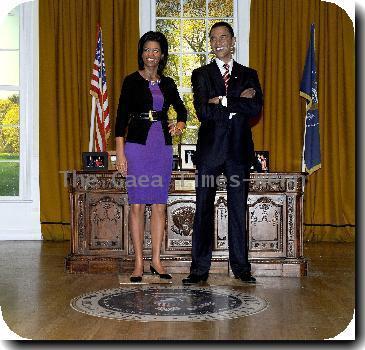US prods a war-weary Europe to fulfill pledge for more trainers for Afghan security forces
By Slobodan Lekic, APWednesday, June 9, 2010
US pushes Europe to provide more war advisers
BRUSSELS — The United States will press its NATO allies Thursday to send additional advisers to train Afghan military forces, as several countries promised after refusing to supply more combat troops.
Some countries have dragged their feet and failed to dispatch as many police and army trainers as they pledged last year, generally blaming logistical issues for the shortfall.
The war is deeply unpopular with Europe, where many countries are considering steep cuts in military spending in response to the region’s debt crisis.
“My view is those allies and partners who are not prepared to commit combat forces or to increase the number of their combat forces should step up when it comes to trainers,” U.S. Defense Secretary Robert Gates said Wednesday, ahead of two days of talks here with NATO defense chiefs.
NATO says it needs about 450 additional instructors to help train the Afghan police and army.
Public frustrations with the stalemated war are growing in many of the 46 nations that have contributed the 122,000 foreign troops serving in Afghanistan, and Gates said there is growing pressure for signs of progress in the ninth year of the conflict.
“In virtually all of the coalition countries, the publics are going to expect to see some progress this winter, some sign that we are moving in the right direction,” Gates said. “I think the voters are sophisticated enough to know that we’re not going to be done.”
NATO chief Anders Fogh Rasmussen said training remains vital and represents a “success story” for the alliance.
“This success is what the Taliban doesn’t want to see,” Fogh Rasmussen said ahead of the session. “They might think they can wait us out. But within a year or so, there will be over 300,000 Afghan soldiers and police trained and ready to defend their country. And they can’t be waited out.”
The allies set an interim goal of expanding the Afghan army to 134,000 troops by the end of 2010. But recruits are flooding into the ranks faster than they can be properly trained, and the overall performance of the security forces is fair at best.
Gates said Afghan forces could begin assuming control in select areas of the country this winter. As the U.S. did in Iraq, the plan is to gradually hand over security to homegrown forces.
Gates said war commander Gen. Stanley McChrystal is “pretty confident” he can show progress in the next seven months. Gates will talk with McChrystal later this week.
Despite the public optimism of NATO’s leadership about the progress of the war, the alliance is still struggling for the upper hand in crucial parts of Afghanistan. Some operations, such as the retaking of the town of Marjah in strategic Helmand province, have had mixed success.
Neither do NATO leaders expect any easing of the violence, at least in the short term. Alliance casualties have nearly doubled in the first five months of this year, compared with the same period in 2009, while Gates and other leaders have predicted heavy casualties this summer.
U.S. support for the Afghan war has declined since last year, when President Barack Obama committed 30,000 additional troops. The move was intended to seize momentum from the Taliban insurgents, who regrouped and took the offensive after being swept from power in 2001.
The U.S. has given up asking European and other allies for more combat forces in Afghanistan, where the U.S. has more forces on the ground than the rest of the allies combined.
Britain is an exception, with 9,500 combat troops in place. Gates said he would not ask for anything more from the new government there.
The training mission was supposed to be easier for European governments to swallow, since it is mostly away from the front lines and mirrors police training functions that have been a staple for NATO for decades.
Despite the debt crisis that has sent the value of the Euro plummeting, no NATO nation has said it would cut its current level of commitment to Afghanistan.

